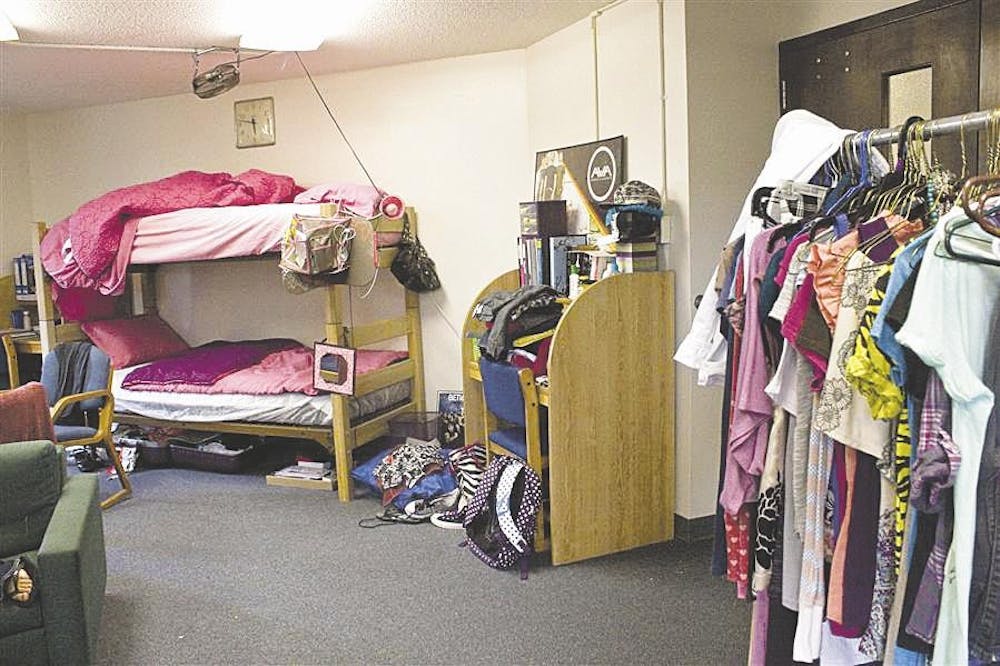It’s the first week of the fall semester. New students across campus are getting to know their roommates, exploring campus and settling into their residence hall rooms.
Except for the 290 students who are living in lounges.
With 4 percent of the freshman class living in lounges last semester, the IU policy that requires all freshmen to live in the dorms could be contributing to overcrowding.
The policy, enacted in 2000, was based on University research that proved a majority of students who lived in dorms were more active in the academic community, had higher grades and were more likely to continue their education.
Sara Ivey Lucas, assistant director of assignments for Residential Programs and Services, said the University’s housing rates prior to this policy were fine. The policy was enacted mostly because of its academic and social benefits.
Though many students complain about the inconveniences of dorms and issues with
roommates, some feel that it is the primary basis of the transition to college.
Senior Mica Harrison said she thinks living in dorms helps students learn how to deal with different people and situations. As a former resident assistant, she said she feels dorms offer support and learning experiences.
Trinadi Shires, who is in her fourth semester at Purdue, said she has never lived in a dorm, nor does she intend to.
“If I had been asked (if I felt I missed out) when I first enrolled in college, I would have said no,” Shires said in an e-mail. “But after living for a year in Lafayette with my boyfriend, I see the social value of living in the dorms or in campus apartments.”
Sophomore RA Carmen Miller said dorms are important because they help establish a friend base on campus.
“I know that I would have made friends much more quickly had I lived on campus instead of on the far other side of town,” Shires said.
John Sautter, Purdue University vice president of housing and food services, said that the university has not had a policy requiring freshmen to live in campus housing since the 1950s.
Still, Sautter said 90 percent of freshmen opt to live in the dorms and 41 percent of those freshmen renew their housing contracts.
Overcrowding “is more an issue of class size growing faster than building rates," Ivey Lucas said.
She added that RPS is in the process of making changes that will hopefully assist in solving the problem of overcrowding.
These changes include a new dorm under construction at 10th and Union Street and that some of the age-specific housing is being redesigned to allow for more room.
Miller said she noted the issue of overcrowding and suggested the policy be modified in some way.
Despite the absence of a dorm requirement, Sautter said Purdue’s student organizations have outstanding participation rates with about 800 organizations and more than 8,000 programs put on each year.
“Every campus is different,” he said. “Just as Purdue’s program fits us, IU’s program probably fits as well.”
But there are exceptions to IU’s policy.
Freshmen can apply for exemptions for situations including marriage, children and being over the age of 21.
About 200 exemptions are processed every year, and Ivey Lucas said 100 to 150 are accepted.
She also said that universities such as Ball State are beginning to consider two-year required housing contracts for freshmen. However, Ivey Lucas said, “that’s not where I see IU going.”
Freshmen required to live in dorms

Get stories like this in your inbox
Subscribe





